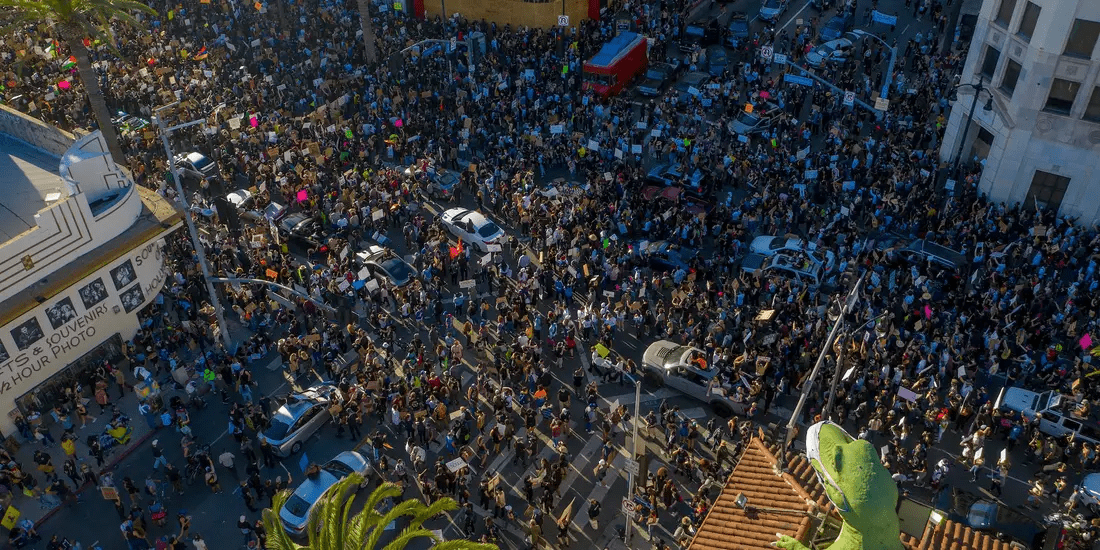United is changing the way they do their frequent flyer miles.
I just received an e-mail from the company saying they are changing their mileage program in 2015. It’s not that significant in my life, but I’m fascinated with mileage programs and I love dreaming about where airline miles could someday take me.
The e-mail detailing the change (and greater challenge to earning miles) messes with something that has been constant and exciting to me for years.
It was one small reminder the world is changing all around us.
More significantly, this past week I’ve been tuning into CNN daily to find updates on The Islamic State in Iraq and Syria (ISIS), an extremist group associated with al Qaeda, which has taken over Tikrit and Mosul, Iraq’s second largest city, and is now pushing toward Baghdad. Their goal of redrawing maps and creating a new caliphate or Islamic state that encompasses parts of Syria and Iraq, is huge change.
Closer to home there have been two school shootings in the Pacific Northwest in the last two weeks—Seattle Pacific University and Reynolds High School outside of Portland. Though statistics on the number of school shootings vary based on definition, CNN reported there have been 15 school shootings since the Newtown shootings in December 2012—that makes one shooting every 5 weeks. That doesn’t count shootings at malls, movie theaters and other shooting altercations at schools.
I heard last night of a fourteen year-old who is obsessed with Russia’s incursions into Ukraine and daily searches out news stories for updates. For him, this story is scary, significant and somehow connected to his very young life.
Less dramatic, but possibly just as significant are the demographic shifts taking place across the globe.
For example, the World Economic and Social Survey released by the UN in 2013 estimates that “more than 6.25 billion people will be living in cities by 2050. Between 2000 and 2050, developing regions could add 3.2 billion new urban residents, a figure larger than the entire world’s population in 1950.”
Similarly, technology and innovation in the business sector is happening at a dizzying pace. According to futurist Jim Carroll, recent research indicates that 65 percent of current preschool students will work in a job that does not yet exist and roughly 60 percent of Apple’s revenue is currently generated by products that are less than four years old.[1]
Alvin Toffler in his modern classic Future Shock, written in 1970, defined “future shock” as “the dizzying disorientation brought on by the premature arrival of the future…it is a time phenomenon, a product of the greatly accelerated rate of change in society.”
In many ways, the current rate of change in society is creating future shock for many of us.
I used to think older generations disliked change. I’ve since realized that we all struggle with change. Fourteen year olds don’t like change and I don’t like change.
How do we deal with significant and constant change in the world?
How do we deal with the ugliness in our backyard and on the other side of the world?
How do we deal with suffering in the world?
First, the constancy of God is a hallmark of Christian belief.
The Old Testament prophet Isaiah says, “Though the mountains be shaken and the hills be removed, yet my unfailing love for you will not be shaken nor my covenant of peace be removed,” says the LORD, who has compassion on you.” (Isaiah 54:10)
Peace is something we don’t have in the midst of change, but peace is the goal and what God’s covenant insures. Over fifty times in the Old Testament we are admonished to “fear not.” Jesus spoke “peace” into the cracks of greatest stress with his disciples. Three times after his resurrection—as all was changing around his followers—Jesus said, “peace be with you.”
As in scripture, the greatest changes in the world today demand the strongest reminders of God’s faithfulness and covenant of peace.
Second, God is a god of peace who loves his creation and, likewise, we too are to be peacemakers who love God’s creation. Though God is constant, we were never promised an idyllic world in this age. Most of life isn’t going to reflect a stable small town existence with county fairs over lazy summers. Much of life is in flux and will remain in flux.
Peace is something we are to actively work for in the midst of chaos and change, as God carries out his plan for the new creation. James says, “Peacemakers who sow in peace reap a harvest of righteousness (synonym of justice).” (James 3:18)
Peacemaking and sowing is our active response to a turning world in need of stability and hope.
Peacemaking is the response to our lament, frustration, righteous anger, and confusion. It is our way of actively spreading seeds of faith, hope and love.
You can’t settle into life.
One of the problems we encounter in contemporary culture is that there are too many fourteen year-olds and eighty year olds watching news stories and somehow thinking their ultimate peace is dependent on geo-politics in Eurasia or the small things in our own lives we can’t control—like United changing their frequent flyer program.
As St. Augustine wrote over sixteen hundred years ago in book one of his Confessions, “You, O God, have made us for yourself and our hearts are restless till they find rest in you.”
As Christians, the witness we have to a changing world is that through it all we remain anchored by our belief in the compassion of God; we fix our eyes on the author of our faith, and we lean heavy into our call to be agents of redemption, reconciliation and peace in the world.
All around today there is change—big change—and change can be scary.
The best of life, however, doesn’t result from periods of stasis devoid of change and filled with comfort. Rather, it comes as I find stability in God’s covenantal love and as I am actively participating with him in the rebuilding of shalom—suffering the pains of this world, transforming them as I’m able, and realizing in compassion that often what many are facing is more unjust than the change that’s occupying me.
[1] Futurist Jim Carroll: (http://www.jimcarroll.com/2011/10/keynote-feedback-some-mind-blowing-stats/#.U5ntY5RdXQk)






